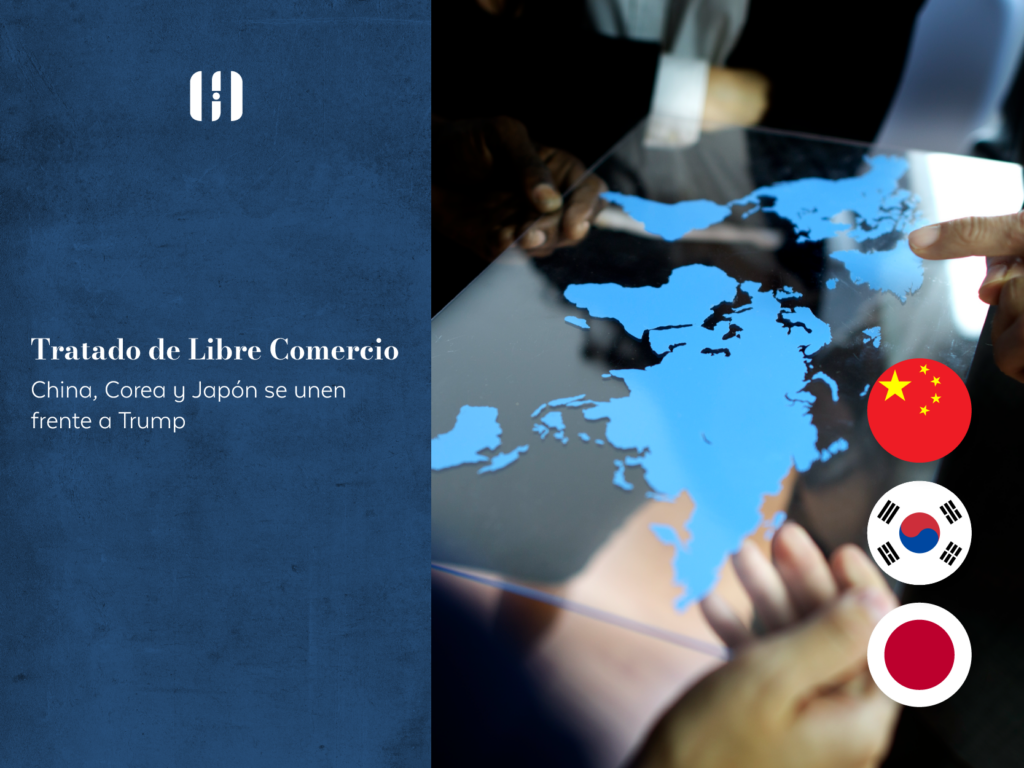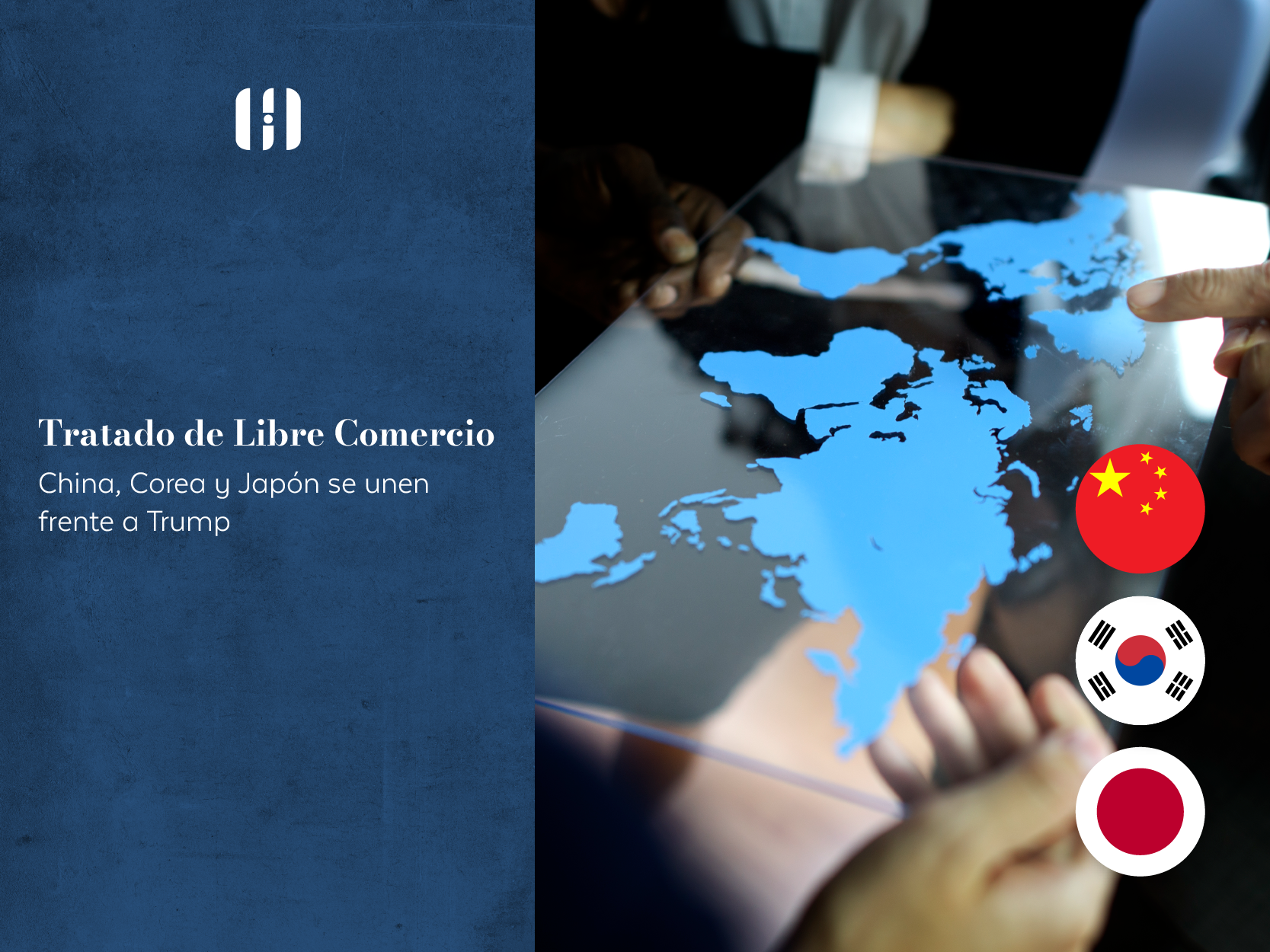China, Japan, and South Korea have decided to join forces in response to the growing U.S. trade offensive. The ministers of Industry and Commerce from the three countries met in Seoul on March 30, 2025, to discuss a “global” and “fair” trilateral free trade agreement in response to the tariff hikes imposed by Washington. The main goal is to strengthen cooperation between these Asian economies at a critical time, as they heavily depend on exports, particularly in key sectors such as the import of semiconductor raw materials between China, Japan, and South Korea. In return, China has shown interest in buying electronic products, such as chips, from Japan and South Korea.
This meeting comes after the United States imposed 25% tariffs on steel and aluminum, effective since mid-March, and added a 25% surcharge on imported cars starting on April 2. In addition, Washington had already imposed a 20% tariff on Chinese imports. Although discussions on a trilateral agreement between China, Japan, and South Korea began in 2013, they stalled in 2019 and were relaunched in 2024 during a special summit that brought together the leaders of the three countries in Seoul.
The three countries emphasized their intention to “gradually intensify their cooperation” in order to “create a predictable trade environment, stabilize supply chains, and improve communication on export controls,” according to a statement issued by Seoul. They also pledged to “work closely” to promote reforms in the World Trade Organization (WTO) and encourage new countries to join the Regional Comprehensive Economic Partnership (RCEP), a vast trade agreement that already includes 15 Asia-Pacific countries, including China.
This trilateral alliance aims to strengthen trade relations and stabilize supply chains, as well as better manage export controls and reduce trade tensions that have increased due to protectionist policies. For Japan, this is a significant victory, given the historical and territorial disputes it has with China and South Korea. According to the Chinese government, “unilateralism and protectionism are spreading, putting strong pressure on global trade and increasing uncertainty. The three countries must take responsibility for preserving the multilateral trading system and promoting regional economic integration.”
Japan’s Foreign Minister, Takeshi Iwaya, highlighted that this moment is “crucial” in the history of the three countries. Together, China, Japan, and South Korea represent about 20% of the global population, a quarter of the global economy, and 20% of global trade. Despite growing concerns over Trump’s protectionist policies, there are signs that these measures will not stop the momentum of globalization in the long term.
China has also reacted to Trump’s policies, with one of the most affected sectors being Japan’s automobile industry, which represents 10% of employment and 20% of the country’s exports. Shigeru Ishiba, a Japanese politician, warned that the impact on the economy will be significant and stressed that there is nothing to be gained from such a battle, suggesting that Japan should explain things to Washington.
This initiative is part of a broader strategy led by Beijing, which promotes international trade based on openness and in direct opposition to Donald Trump’s protectionist policy, with his “America First” doctrine. In response to U.S. pressure, Beijing has already imposed retaliatory tariffs and advocates for stabilizing its relations with its major trading partners.
In summary, this trilateral alliance between China, Japan, and South Korea marks a turning point in global trade policy. Growing regional cooperation in Asia could accelerate the creation of a new pole of economic stability as these nations seek to strengthen their economic power and counterbalance the tensions caused by the protectionist policies of the United States.




